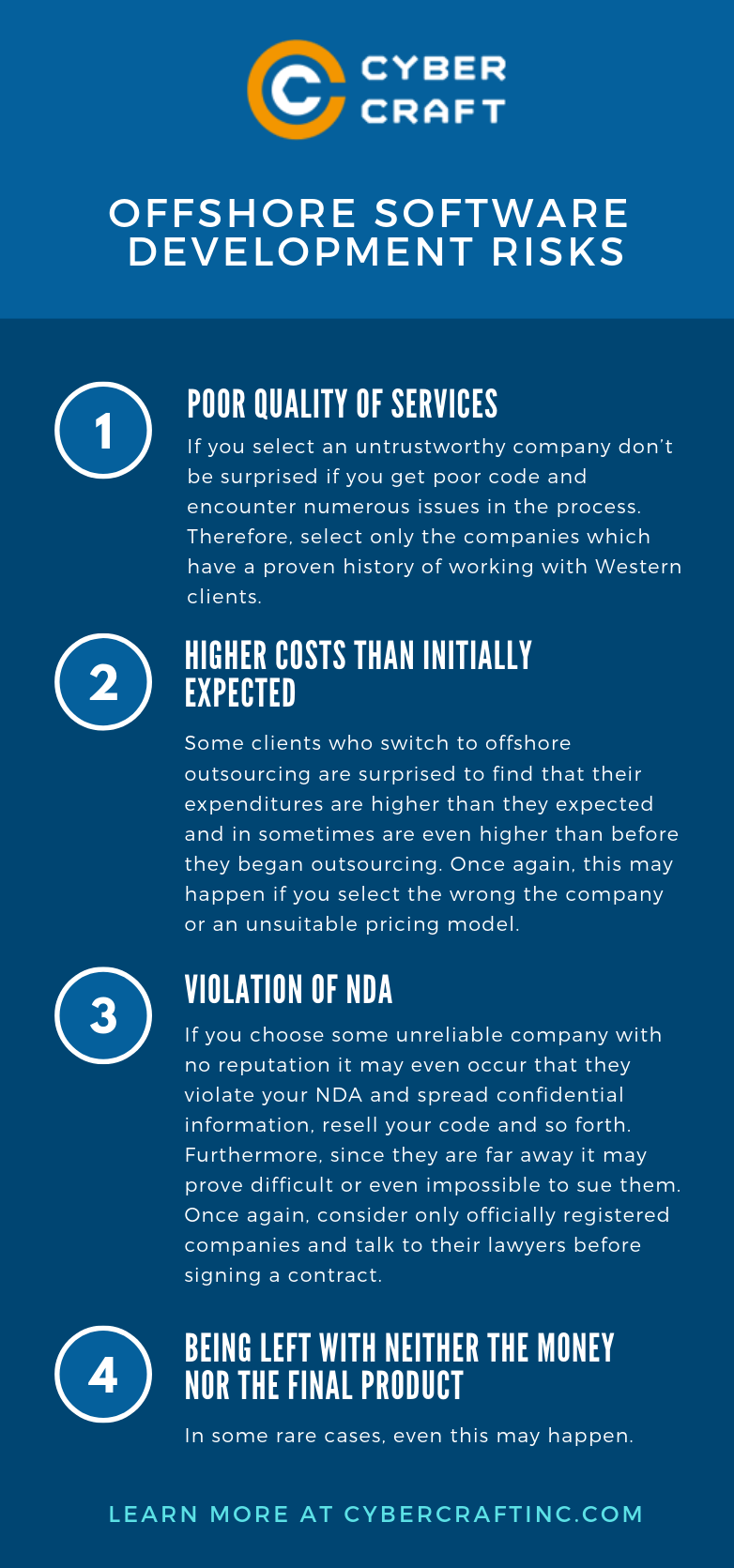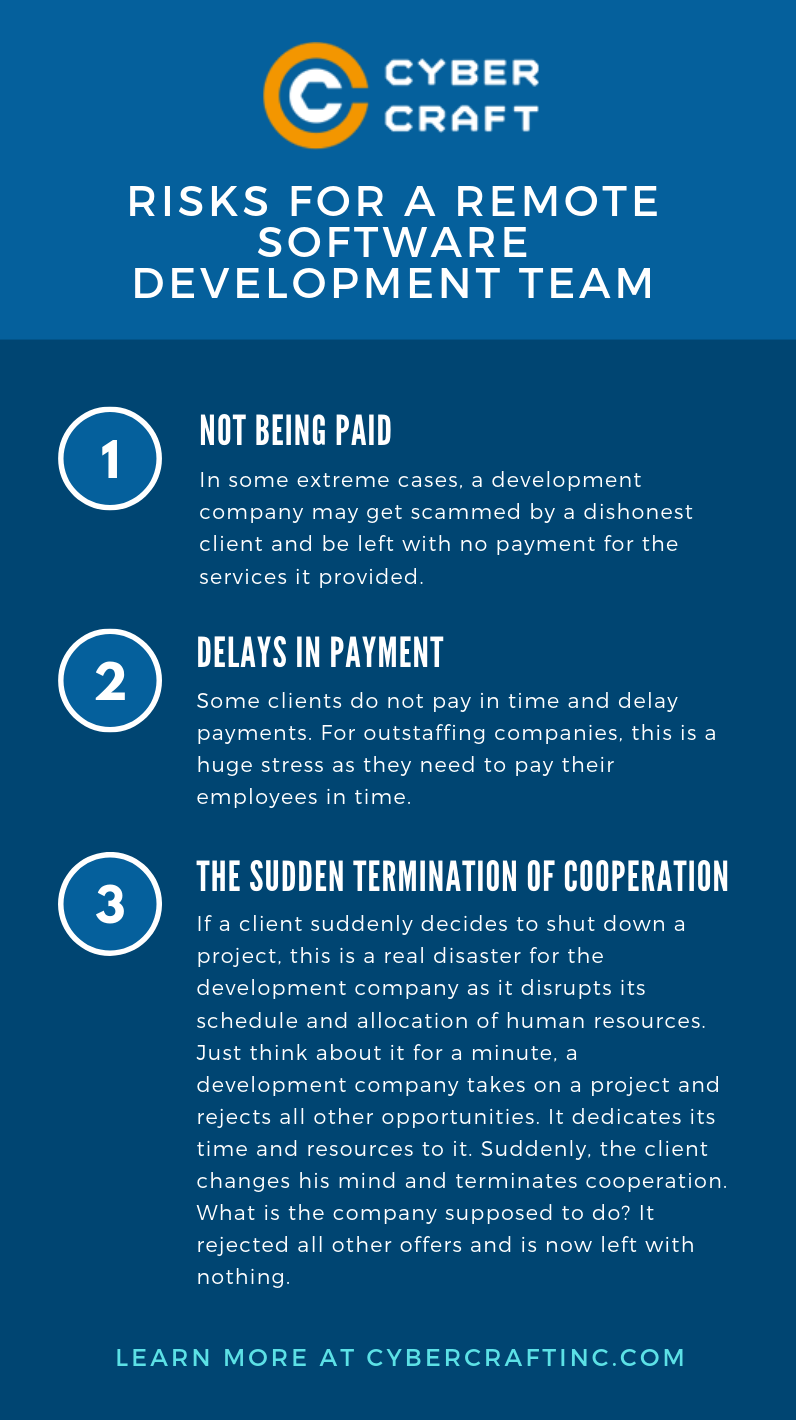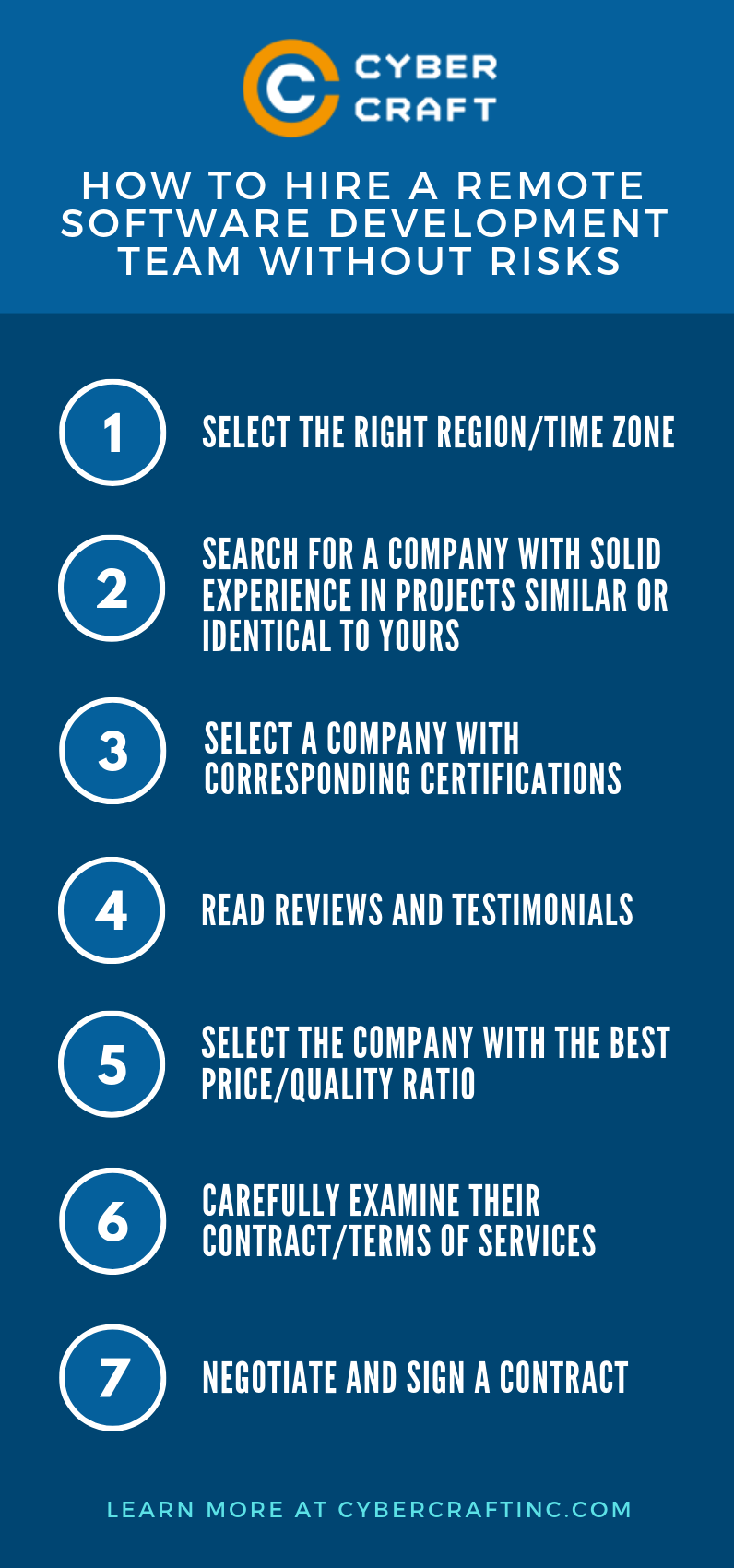Why Is Remote Software Outsourcing a Great Idea?
Wondering if it is a good idea to hire a remote software development team for your project? Is it risky to hire offshore developers? Is it really worth it? What advantages will you enjoy? In this detailed guide, you will find answers to these and many other important questions. We will investigate whether offshore development and software outsourcing is the right idea for your business and how to do it the right way.
Software development outsourcing has become extremely popular among businesses around the globe. And it’s not surprising as remote software development and hiring a dedicated development team can offer significant benefits to your business. So before we analyze how to successfully outsource software development without risks, let us see why it may be one of the best decisions you will ever make in your business career.
Why Is Remote Software Outsourcing a Great Idea?

Why do the largest companies in the world such as Google, Microsoft, Apple, and others outsource software development? Because it is more profitable and advantageous than doing development in-house. Why? There are many reasons why – starting from lower development costs and ending with less headache. Before we explain why you should consider offshore software development, it is important to understand that when it comes to hiring an offshore development team there are basically two distinct options – outstaffing and outsourcing.
Outstaffing vs. Outsourcing
Many clients do not understand the difference between outstaffing and outsourcing. This distinction is a vast one, however. Outsourcing implies full control of the development process by the development company. As a client, you just tell them what you want to get in the end and they take care of the rest. Of course, this is a simplified description of outsourcing but that’s what it looks like essentially.
In contrast, outstaffing implies full responsibility and management of the development from the client’s side. In other words, you get direct access to a remote dedicated development team and manage it yourself. It’s like directly employing people without you know, employing them:) Outstaffing is a good idea when you need more control and efficiency. So with this being said, let us explore the two main advantages offshore development will provide you with.
Cut Development Costs While Enjoying the Same or Even Better Quality of Development

Offshore development can help you to significantly cut development costs without sacrificing quality. The reason why it is possible is simple. There are some countries such as Ukraine where the software engineers are just as talented as in the US yet the salaries are much lower.
Therefore, it makes absolute sense to outstaff software development and hire a remote team from that or some other region. In many cases, this will allow you to cut development costs by up to 60% i.e. increase your business profitability and generate more net income for your company.
In some cases, clients who use offshore development services are lucky to get an even better quality of development than with local developers! And when you think about the long-term implication of this, just try to calculate how much money it is possible to save over the years if outstaffing or outsourcing software development. The bottom line is, you have nothing to lose (if you hire the right people) but quite a lot to gain. Besides lower costs, there also exists another noteworthy advantage which you must know about.
No Employees – No Problems!

Outstaffing rids you of a need to directly hire employees. This has several important consequences. First, this means you don’t have to provide office space to developers and incur any costs related to it. Secondly, it has an important psychological result – less headache. When you don’t have employees, you don’t have to spend time on managing them, dealing with their problems and so forth.
Thirdly, employing people implies additional costs besides the actual salary such as social security contributions, various benefits, payroll taxes, etc. With outstaffing or outsourcing, you don’t have to deal with any of these. However, although the benefits of offshore software development are quite impressive there also exist certain risks which we must warn you about.
Offshore Development Risks
Software outsourcing, usually being remote in its nature entails a few noteworthy risks:

- Poor quality of services. If you select an untrustworthy company don’t be surprised if you get poor code and encounter numerous issues in the process. Therefore, select only the companies which have a proven track record of working with Western clients.
- Higher costs than initially expected. Some clients who switch to offshore software development are surprised to find that their development costs are much higher than they expected and in some cases, are even higher than before they began outsourcing. Once again, this may happen if you select the wrong the company or an unsuitable pricing model (time & materials, for example).
- Violation of NDA. If you choose some unreliable company with no reputation it may even occur that they violate your NDA and spread confidential information, resell your code and so forth. Furthermore, since they are far away it may prove difficult or even impossible to sue them. Once again, consider only officially registered companies and talk to their lawyers before signing a contract.
- Being left with neither the money nor the final product. In some rare cases, even this may happen.
However, besides risks for a client, there also exist risks for the development company which you must understand.
Risks for the Remote Development Team
It is a mistake to think that only one side faces risks. The development company takes on significant risks as well:

- Not being paid. In some extreme cases, a development company may get scammed by dishonest clients and be left with no payment for the services it provided.
- Delays in payment. Some clients do not pay in time and delay payments. For outstaffing companies, this is a huge stress as they need to pay their employees in time.
- The sudden termination of cooperation. If a client suddenly decides to shut down a project, this is a real disaster for the development company as it disrupts its schedule and allocation of human resources. Just think about it for a minute, a development company takes on a project and rejects all other opportunities. It dedicates its time and resources to it. Suddenly, the client changes his mind and terminates cooperation. What is the company supposed to do? It rejected all other offers and is now left with nothing.
As you can see, both sides face risks. The question is how to make that kind of cooperation risk-free. And this is exactly what we will talk about next.
How to Hire an Offshore Development Team without Risks?

Finding a truly trustworthy remote development team may prove a lengthy and complex process which requires much diligence. However, the result is usually worth it. Without a clear roadmap in place, the selection process may become a real nightmare. For this reason, we have created this must-use checklist which will help you to search and find the best software development partner for your company.
Select Right Region/Time Zone

The first step in this process is to decide which time zone you are comfortable working with. If you are based in the UK, for example, then working with developers from Eastern Europe or even the Middle East is not going to be problematic for you. Their time zones are not too far from yours so there should be timezone gap.
Secondly, the selected region itself is important. For instance, in our example with the UK-based client, entire Africa lies in the right timezone but is this region really suitable for outsourcing software development? What about political stability and other macropolitical and macroeconomic factors?
The correct time zone itself is not enough. You must ensure that the region of your choice can provide you with the right companies and specialists and that there will be no issues such as political instability, for example, which may suddenly disrupt cooperation. Once again, Eastern Europe seems to be the best option in this case, as it satisfies the above-mentioned conditions.
Select a Company with Solid Experience in Projects Similar or Identical to Yours

Having determined which time zone and region you are comfortable working with, the next step is to begin searching for suitable candidates in that region. And then you might be wondering what criteria to apply for filtering potential candidates? The key thing you should be looking for is solid experience with projects similar or identical to yours. If a firm you are considering does not have relevant experience in the needed areas then you are just wasting your time.
Select a Company with Corresponding Certifications

Legit outsourcing companies all have official certifications from Microsoft, Google, and other tech giants. If your potential development partner has those it is a good sign. It is not the determining factor, of course, but rather a good bonus.
Read Reviews and Testimonials

Many firms will be glad to provide you with reviews and testimonials by their past or current clients. It’s a common thing. If a company does not have any that’s a red sign. It is a good idea to search for feedback about a company’s services from outside sources. You might also want to directly contact previous or current clients and ask about their experience with the firm.
Select the Company with the Best Price/Quality Ratio

Of course, it is hard to quantify “quality” and measure it. How exactly does one measure the quality of a company’s services? It is subjective to a degree. Nevertheless, try to approximately estimate relative price/quality ratios for the best candidates and then proceed with the one which has the highest ratio.
Carefully Examine Their Contract/Terms of Services

Every company has its own terms of services. Carefully study the terms and conditions of your selected candidate. Show it to your lawyers and consult with them. Are there any dubious conditions, statements, etc.? Get as much legal information about the company as you can. Who are the founders/directors? Are there any active or past court cases/criminal proceedings? Carefully examine their track record. Take your time. Remember, investigate before you invest.
Compose and Sign a Contract

If legal examination of your candidate proved successful then after rounds of negotiations you can finally proceed to sign a contract. In most cases, both parties will have to contribute to composing a contract which should satisfy both sides. Have your lawyers work on the contract but stay in touch as well. Carefully examine the draft and read it through a few times. Make sure you’re happy with the terms.
Also, don’t forget about the non-disclosure agreement (NDA) part. When it comes to payment terms, the best scenario (if you’re using outstaffing) is to pay a transparent monthly fee, not a fixed price beforehand. Many software development outstaffing companies, such as CyberCraft, for example, do so.
Conclusion
Hiring a remote software development team may prove a great decision for your business. It is is vital that you select the right time zone and region for finding your outstaffing company.
Consider only those companies which have a proven track record and sufficient experience with projects similar to yours. Carefully examine their certifications, legal information and terms of services. Make sure they have transparent payment terms, do the necessary negotiations and finally, sign an agreement.
On this happy note, we want to thank you for taking your time to read our guide and we wish you success on your path to finding a trusted offshore software development partner.
If you’re ready to hire a remote software development team then get in touch with us today – fill out the form below and receive a free consultation & detailed quote for your project or company!





